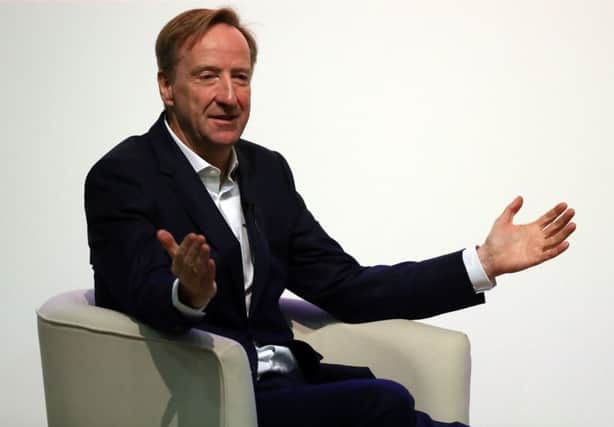St Andrews: MI6 head '˜perplexed' at jailing of British academic


Matthew Hedges was freed last week after a high-profile battle with the Gulf state ally, but officials persisted in calling him an MI6 spy – a claim denied by family and colleagues.
Intelligence chief Alex Younger said there would be “frank conversations” with the UAE over the incident.
Advertisement
Hide AdAdvertisement
Hide AdDuring a rare public speech at the University of St Andrews today, MI6 boss Mr Younger said: “I genuinely don’t understand how our Emirate partners came to the conclusions they came to.
“They are important partners of ours, so I think there are some frank conversations ahead of us.”
In only his second public speech since becoming “C” four years ago, Mr Younger warned of threats from enemies who regard themselves as being in a state of “perpetual confrontation”.
He said the UK needed to adjust to a new political reality as “power, money and politics is going east”.
Speaking to students at his alma mater, the chief of the Secret Intelligence Service (SIS) said sources of threats to national security were getting “more complicated”.
He said: “You can see where this is going. It’s getting more complicated.
“Power, money and politics is going east.
“In that respect, we find ourselves as a prize taker in places where we might have been a prize maker in the past.
“That’s a new political reality that we need to adjust to.”
He singled out Russia and the “flagrant hostile act” of the Salisbury nerve agent attack, adding MI6 would no longer take the state by its word.
Advertisement
Hide AdAdvertisement
Hide AdHe said: “Mr [Sergei] Skripal came to the UK in an American-brokered exchange, having been pardoned by the president of Russia – and to the extent that we assumed that had meaning.
“That is not an assumption we will make again.”
Mr Younger described how MI6 helped expose the perpetrators said to be behind the attack and how it helped co-ordinate the expulsion of Russian diplomats.
He said: “Our intention is for the Russian state to conclude that, whatever benefits it thinks it is accruing from this activity, they are not worth the risk.
“We will do this in our own way, according to our laws, and our values.
“We will be successful nonetheless, and I urge Russia or any other state intent on subverting our way of life not to underestimate our determination and our capabilities, or those of our allies.
“We can do this to any opponent at any time.”
On Brexit, the MI6 chief said it would continue to strengthen security links with Europe.
“The implications of the Brexit debate have been set out by ministers,” Mr Younger said.
“For our part as SIS, we will always work with our sister agencies to strengthen our indispensable security ties in Europe.
Advertisement
Hide AdAdvertisement
Hide Ad“We also work with other partners across the world, to disrupt terrorist activity and counter other serious threats, but always on our terms and based on our laws and our values as the United Kingdom.”
Mr Younger warned “rogue states” not to underestimate the UK’s capabilities as he underlined the need for a new era of spying amid emerging threats.
He described how intelligence agencies are developing a “fourth generation of espionage” as adversaries take advantage of the “blurred lines” between the cyber and physical worlds.
The MI6 chief highlighted how working with other intelligence services had disrupted “multiple” planned attacks by Isis overseas, though said he would not hide the fact some MI6 agents “have paid the ultimate price”.
Mr Younger also told students the UK is “well equipped” to counter those who launch attacks on Britain in ways that fall short of traditional warfare, such as cyber attacks and the spreading of disinformation.
He said: “The era of the fourth industrial revolution calls for a fourth generation espionage: fusing our traditional human skills with accelerated innovation, new partnerships and a mindset that mobilises diversity and empowers the young.”
